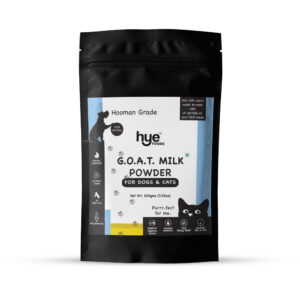Our feline companions may be known for their independent streak, but when it comes to nutrition, they rely on us to provide a purrfectly balanced diet. Choosing the right cat food can be confusing, with endless brands and varieties lining pet store shelves. But fret no more! This guide will equip you with the knowledge to decipher cat food labels and create a meal plan that keeps your whiskered friend thriving.

Understanding Your Cat's Nutritional Needs
Cats are obligate carnivores, meaning their bodies are specifically designed to utilize nutrients derived from animal protein. Unlike their omnivorous canine counterparts, cats lack the digestive enzymes required to efficiently break down carbohydrates found in high quantities in grains and vegetables. So, what exactly do cats need in their diet?
- High-Quality Protein: The building block of healthy muscles, fur, and organs. Look for cat food that lists meat (chicken, fish, turkey) as the first ingredient.
- Essential Fatty Acids: Promote healthy skin, coat, and overall well-being. Omega-3 and omega-6 fatty acids are crucial for feline health.
- Taurine: An essential amino acid not naturally produced by cats. It plays a vital role in vision, heart function, and digestion.
- Vitamins and Minerals: Just like humans, cats require a balanced mix of vitamins and minerals for optimal health.
Is Milk Healthy for Cats?
The age-old question! Lactose intolerance is common in adult cats, meaning their bodies struggle to digest the lactose sugar found in cow’s milk. This can lead to digestive upset, including diarrhea and vomiting.
What Type of Milk Can Cats Drink?
In small quantities, some cats may tolerate lactose-free cow’s milk or fortified cat milk replacer. However, these should never be a primary dietary source.

Goat Milk for Cats: A Potential Alternative
Goat milk naturally contains less lactose than cow’s milk and may be easier for some cats to digest. It’s important to note that goat milk should still be offered as an occasional treat, not a dietary staple. Consult your veterinarian before introducing any form of milk to your cat’s diet.
What to Feed Senior Cats
As cats enter their senior years, their nutritional needs can shift. Senior cat food formulations often contain higher levels of antioxidants to support immune function and cognitive health. They may also be easier to chew, which can be beneficial for cats with dental problems.
What Should My Cat Eat Daily?
The answer depends on several factors, including your cat’s age, activity level, and overall health. A veterinarian can recommend the ideal daily calorie intake for your feline friend. However, here’s a general breakdown of cat food options:
Dry Food (Kibble): A convenient and affordable option, but may not provide adequate hydration for some cats.
Wet Food (Canned Food): Higher in moisture content, which can benefit cats prone to urinary tract issues.
Raw Food: A species-appropriate diet mimicking a cat’s natural prey, but requires careful preparation and carries a higher risk of bacterial contamination.
What liquid should I feed a sick cat?
If your cat is sick, dehydration becomes a major concern. Fresh, clean water should always be readily available. In some cases, your veterinarian may recommend oral rehydration solutions or intravenous fluids for severe dehydration.
What is a good milk substitute for cats?
There isn’t a direct milk substitute, but broth made from boiled chicken or fish can provide additional hydration and entice a sick cat to drink.
Can Sick Cats Drink Milk?
Generally, no. Milk can worsen digestive issues in a sick cat. Always prioritize water or veterinarian-recommended fluids.
The Right Diet for a Happy and Healthy Cat
By understanding your cat’s unique nutritional needs and choosing a high-quality cat food that provides all the essential nutrients, you’re laying the foundation for a long and healthy life. Remember, consulting your veterinarian is crucial for creating a personalized diet plan that addresses your cat’s specific needs and preferences. With the right knowledge and a little planning, you can ensure your feline friend enjoys a purrfectly balanced and delicious diet!



Where do you source your goat milk?